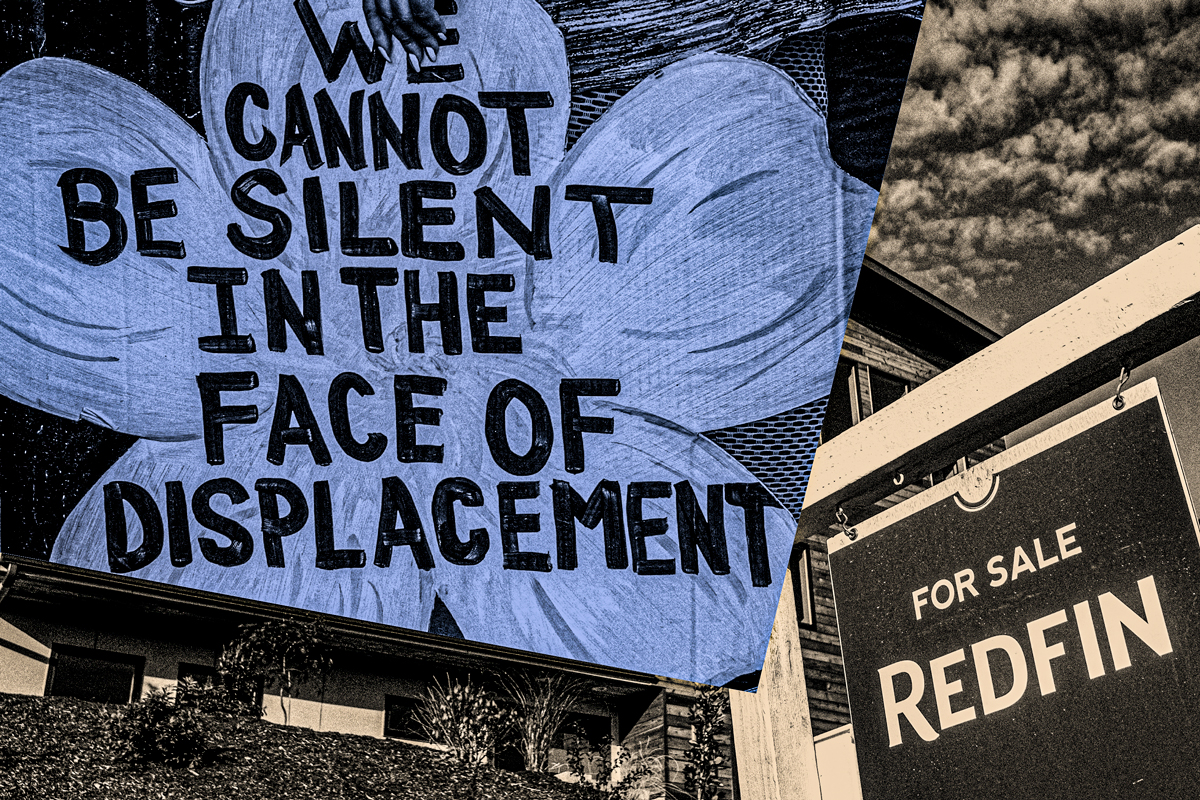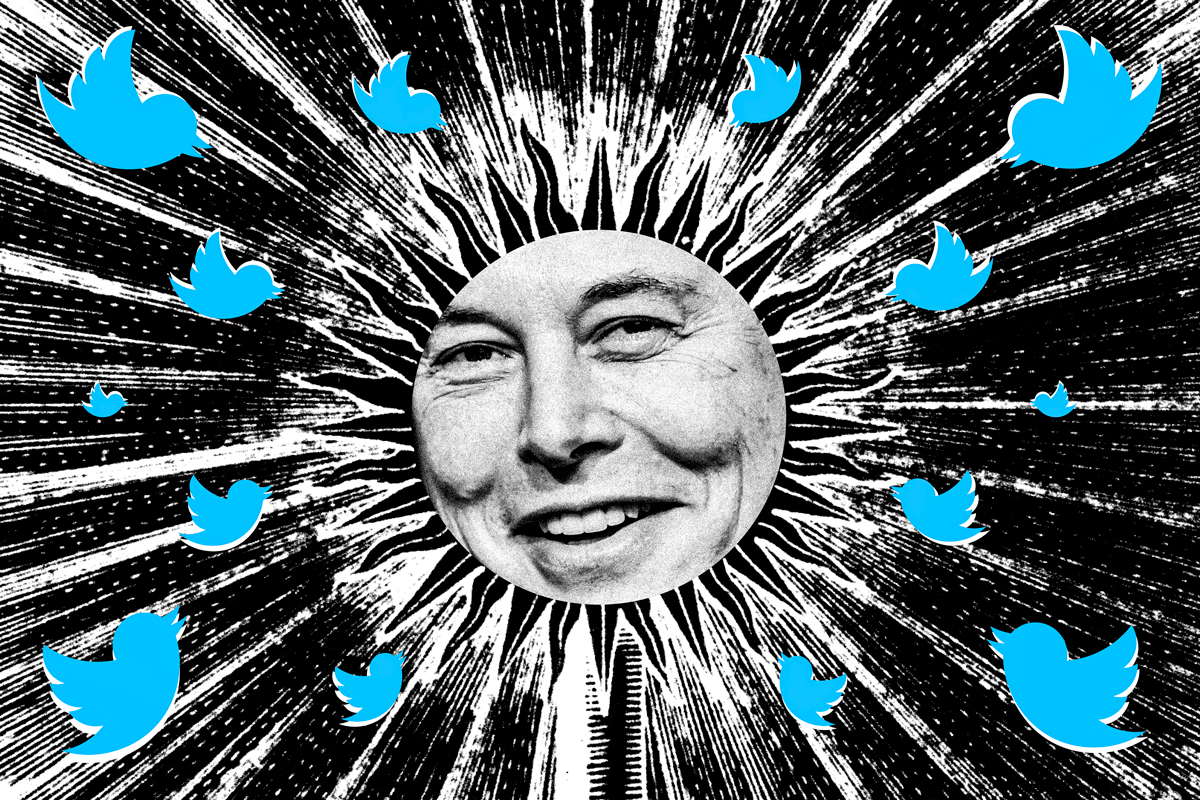One long-standing myth about Black economic self-help has survived into the era of information-age capitalism virtually unscathed: the embrace of investment folklore as a bulwark of “Black buying power” or “Black capitalism.” This investment-first outlook has long served as the all-purpose panacea for the economic deprivation and racism that has plagued Black Americans for hundreds of years. Ardent apostles of the myth reliably champion Black capitalism as a versatile and powerful elixir for all the economic ills plaguing Black America. Close the wealth gap—Black capitalism. An unarmed man is asphyxiated to death on the street—Black capitalism. Federal holidays commemorating emancipation—still more Black capitalism.
Amid all the boosterish rhetoric that feeds the myth of Black capitalism, it’s easy to overlook the racist undertones of its appeal. Since the wealth gap is measured against white people, the suggestion is that Black people as individuals are chiefly responsible for their condition—if only they were as fiscally responsible as white people, they’d pull themselves up by their bootstraps and put all this systemic economic despoliation behind them. It’s all a simple matter of deferring gratification and practicing thrift in the time-honored mold of the Protestant ethic: Just invest “Black dollars” into the market, and prosperity will rain down.
Nowhere is this myth on more garish and destructive display than in the tidal wave of high-end financial outfits and ad campaigns pitching the speculative cryptocurrency frenzy to Black investors. The self-styled “decentralized” and innovative digital currency may be the newest chapter in the myth of Black capitalism, but as the recent plunges in the crypto market show, novelty is no safeguard against the implosion of an asset bubble. Indeed, the collapse of the crypto market stands as an object lesson in the defective folklore of Black capitalism, as the death throes of an unstable currency are bound to wreak further harm in already under-resourced Black communities.
Jay-Z, who sits at the top of Black capitalism’s Mount Rushmore, is a lead crypto prophet. In June, Twitter co-founder Jack Dorsey and Jay-Z launched The Bitcoin Academy at Marcy Houses, the public housing complex in Jay-z’s home borough of Brooklyn. The program “aims to provide education, empower the community with knowledge, and get rid of some of the barriers so that residents can learn more about Bitcoin specifically and finance in general,” an announcement of the deal proclaimed. This is not the first time Dorsey and Jay-Z have collaborated on Bitcoin initiatives—the pair created an endowment to fund Bitcoin development in Africa and India and invested $23.6 million into the project of designating Bitcoin as the “internet’s currency.”
The self-styled “decentralized” and innovative digital currency may be the newest chapter in the myth of Black capitalism, but as the recent plunges in the crypto market show, novelty is no safeguard against the implosion of an asset bubble.
It’s not hard to see where Jay-Z’s Bitcoin infatuation comes from. Even a cursory review of his back catalog reveals an ardor for quick returns on investment that rivals anything in the Dale Carnegie or Norman Vincent Peale success-gospel canon. Throughout his 2017 album 4:44, to take just one example, Jay-Z hymns the glorious spoils of Black capitalism: “I bought some artwork for 1 million / 2 years later, that shit worth 2 million / Few years later, that shit worth 8 million.” But his portfolio contains multitudes; in “The Story of O.J.” he delivers a parable about a missed real-estate windfall: “I could bought a place in Dumbo before it was Dumbo for like 2 million / that same building today is worth 25 million / guess how I’m feelin’ Dumbo.”
It’s not clear yet if Jay-Z will be left feeling the same way after the great crypto market shakeout; what is clear is that plenty of Black celebrities have taken the same leap into the overvalued crypto market in pursuit of the same mythic saving properties of Black capitalism. In 2021, NBA star Russell Westbrook invested $63 million in Varo Bank, the first all-digital nationally chartered bank in the United States. “The banking system has ignored or underserved a large portion of the American population—particularly communities of color,” Westbrook said in a statement. “I’m passionate about making lasting social change and creating a stronger and more inclusive system.” Westbrook’s fellow NBA all-star Steph Curry announced his own 2021 partnership with Bitcoin and the crypto exchange FTX. “FTX is like-minded when it comes to giving back to the community in meaningful ways and I can’t wait to see what we can achieve together,” Curry announced in his statement on the partnership. And this February, NBA mega-star and billionaire LeBron James said he was teaming up with Crypto.com to teach students in James’ I Promise Academy about cryptocurrency. “I want to ensure that communities like the one I come from are not left behind,” James said in his statement.
Historically, racist financial practices left Black Americans out of the country’s banking system. Redlining, predatory loans, and income and wealth inequality prevented Black Americans from achieving a level of social mobility comparable to that of their over-resourced white counterparts, and created generations-long gaps in income and wealth between white and Black America. As African and African-American diaspora professor Jared A. Ball points out in his 2020 book, The Myth and Propaganda of Black Buying Power:
Relative to the national economy, and White America, against which economic gaps are measured, Black people, at roughly 14% of the population, represent, or constitute, or maintain, a paltry 1% of the national wealth. If all the deposits in all the country’s so-called “minority” banks were combined into one, it would rank 16th in the United States for total deposits and would still be hundreds of billions of dollars behind just the top 3 banks alone. And even within the false construct of buying power Black people still only have 8%. Black people earn far less than their White counterparts regardless of education levels.
Statements by Curry, Westbrook, and Jay-Z read like good-faith attempts to use cryptocurrency to close the wealth gap for marginalized communities—yet in reality, the crypto frenzy tends to reinforce the economic isolation of many Black communities, and in periods of market downturn, could well compound it. The Black capitalist myth of crypto-backed uplift works, in other words, to shore up an economic ideology that Princeton University professor Keeanga-Yamahtta Taylor calls “predatory inclusion.” Under the inviting and broad pitches crafted under the doctrine of predatory inclusion, standard private-sector grifts and asset bubbles get repackaged as virtuous mechanisms of Black capitalist self-help. In the housing sector, predatory inclusion meant banks and real estate brokers worked with the government to support housing policies that perpetuate racial inequalities—a scheme that generated billions of dollars for the private sector.
Long before Jay-Z and LeBron James, Black celebrities and athletes were regularly recruited as obliging spokespeople for, and symbols of, the alleged market magic wrought by the system of predatory inclusion. In a 1962 report on the phenomenon, headlined the article “Habit of Employing Top Negro Athletes Called ‘Market Hoax,’” the Pittsburgh Courier, a Black community newspaper, quoted Jesse J. Lewis, president of a Birmingham, Ala., promotion firm: “Every few weeks now I pick up some publications and read that some company has hired an ex-baseball, basketball, football or tennis star to work on special marketing projects for them,” Lewis said. Lewis “blasted the practice of major producers of products and services hiring popular sports figures as ‘super specialist’ on the Negro market and called the practice a ‘cruel hoax. . . . All these people were exceptional in their sports field, but I fail to see how that experience can qualify these people as Negro market experts.’”
Fast forward sixty years, and the same dynamic is at work, minting Black celebrity into the image of Black financial savvy. FTX released a commercial during this year’s NBA Playoffs featuring Steph Curry and narrated by Lakers legend Shaquille O’Neal. “This is Steph Curry, the world’s leading expert on cryptocurrency,” O’Neal says as Curry eats cereal. As Curry performs other mundane domestic tasks, he rejects O’Neal’s claim, saying “I’m not an expert—and I don’t need to be.” Then Curry brandishes his phone with the FTX app on the screen. “With FTX, I have everything I need to buy, sell, and trade crypto safely.”
Among other things, this positioning of an ultra-wealthy star Black athlete as an aw-shucks ordinary day trader flattens out marked class divides within Black America. According to the United States Census Bureau, for Black households the median income is $45,870—a number that scarcely registers on the portfolios of figures such as Curry, O’Neal, James, and Jay-Z.
This chasm is poised to become the economic equivalent of the Grand Canyon as the speculative value of cryptocurrency continues to melt away under market pressures. On May 11, a “crypto-crash” hit millions of investors, erasing $200 billion of wealth from the market. In November 2021, Forbes reported that Bitcoin was valued at an all-time high of $69,000. Since then, it has lost two-thirds of its value, dropping below $23,000 and has lost about 25 percent of its value since June 10. According to Bloomberg, Sam Bankman-Fried, the 30-year-old CEO of crypto trading platform FTX, saw his $26 billion dollar fortune drop by 66 percent since March. Coinbase co-founders Brian Armstrong and Fred Ehrsam saw their combined fortune of $18.1 billion drop to $2.1 billion within the same timeframe. In response to “current market conditions and ongoing business prioritization efforts,” Coinbase plans to lay off approximately 1,000 employees. “We appear to be entering a recession after a 10-plus year economic boom,” Armstrong wrote. “A recession could lead to another crypto winter, and could last for an extended period.”
In reality, the crypto frenzy tends to reinforce the economic isolation of many Black communities, and in periods of market downturn, could well compound it.
A recession would be a calamity for Black Americans who continue to struggle with the structural conditions of economic marginalization. As Jared Bell writes, “Black America retains today roughly the same percentage of the national wealth held in 1863, and as yet another study concludes, regardless of the quality or condition of the national economy, Black people remain always in a ‘permanent recession.’ More still, what are described as wealth and income ‘gaps’ between Black and White America continue either to widen or show signs of closing at rates which will literally take hundreds of years to achieve parity. How then can there be so much ‘power’ in buying? How then can power be redefined as every Black person, including those too old or young to even be in the workforce, retaining none of what they earn?”
Data from Ariel Investments and Charles Schwab Corp shows that Black Americans—especially younger ones targeted in celebrity ad endorsements—have bought heavily into the overhyped crypto market. “About 38% of Black investors under 40 years old own digital tokens, compared with 29% for their White counterparts. . . . Overall, twice as many Black respondents than those who are White ranked crypto as the best investment choice overall.” Black Americans may have found “new opportunities” in cryptocurrency, as the Schwab report sunnily claims—but those opportunities will not close the $10 trillion wealth gap any time soon, as one survey shows the median crypto investor now holds just $191 worth of the currency.
The “crypto crash” might be especially dangerous for those Black Americans who rushed to crypto as a passport to long-term economic inclusion in America’s steeply unequal and racialized social order. Of all crypto backers now suffering the aftereffects of the crash, Black Americans are least able to afford the projected loss of 66 percent of their income or wealth.
The structural limitations of Black capitalism, in other words, stand out in painful relief during periods of market downturn. “Bitcoin does not care what you look like, what culture you come from, your gender or your religious background,” Dawdu M. Amantanah writes in a typical celebration of cryptocurrency’s alleged liberating properties in Bitcoinmagazine.com.
Maybe not—even though the white-bro libertarian culture that bred the cult of Bitcoin strongly indicates otherwise. In any event, every other institution trading in the social mythology of American capitalism cares very deeply about all those things—and that’s why one of the most enduring lessons in the boom-and-bust annals of modern asset bubbles is that Black Americans simply can’t afford to buy into the fiction that the markets are race neutral.
Anthony Conwright is a writer and AAPF fellow living in New York City. Follow him on Twitter @aeconwright.



